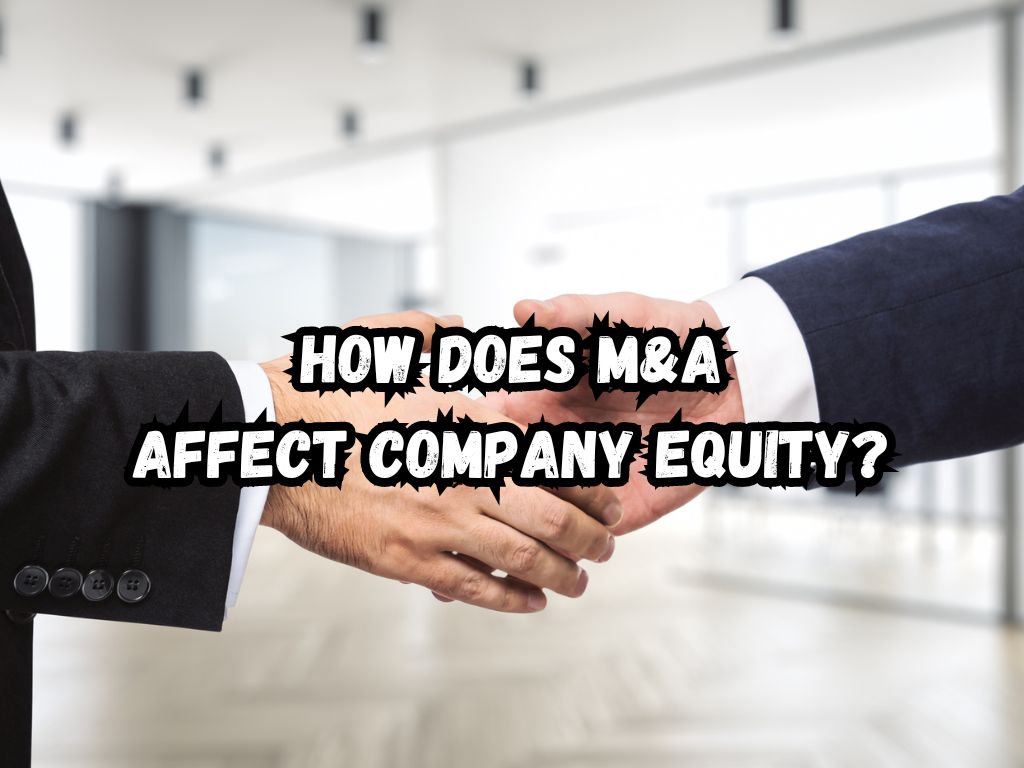When two businesses become one, the effects ripple far and wide. Mergers and acquisitions or M&A, as it is usually known, can yield outsized benefits.
But they also bring their own set of challenges. A key factor often overlooked is the impact of M&A on company equity. This article takes a closer look at how does M&A affect company equity?
Understanding M&A
Before delving into the effects of M&A on company equity, it’s important to understand what M&A entails. A merger is a union of equals. Both firms join forces to create a new entity. On the other hand, an acquisition is akin to a takeover. A larger firm buys a smaller one, which ceases to exist.
Mergers and acquisitions come in different forms. They can be horizontal, where firms in the same industry merge. They might be vertical, wherein companies in the same production line integrate.
Some are conglomerates where businesses with different product lines unite. Lastly, there are concentric mergers in which firms with related businesses join.
Companies resort to M&As for various reasons. They want to enter new markets or seek diversification. Some aim to acquire cutting-edge technology, while others seek to achieve economies of scale.
Understanding Company Equity
Equity, in simple terms, is the value of an asset after all debts are paid. In a company’s context, it’s the residual ownership in the firm after deducting liabilities from assets.
The components of a company’s equity include share capital, retained earnings, and the equity valuation that the market places on the firm (commonly seen through the share price).

How Does M&A Affect Company Equity?
M&A activities have profound effects on company equity, discernable in both the short term and long term.
In the Short Term
M&A can cause immediate financial impacts. A company’s cash reserve might deplete if the acquisition is cash-financed.
There might be a surge in corporate debt if the M&A activity is debt-financed. The cost of integration can also be hefty, eating into the firm’s equity base.
Next are changes in the stock prices. The market’s initial reaction to an M&A announcement can swing share prices. Speculation around the success or failure of the merger can introduce significant volatility.
Then there is the issue of ownership dilution. An M&A activity may require the issuance of new shares. This increases the total number of shares, diluting the ownership of existing shareholders.
In the Long Term
In the longer term, M&A can spur growth and expansion. The increase in size can lead to a more significant market share, boosting revenues and profitability, and thereby enhancing equity.
Further, M&A can unlock cost synergies. Overlaps in operations can be removed, leading to cost savings. Such efficiencies can expand the profit margin, boosting retained earnings and equity.
Finally, M&A can impact brand value and reputation. Successful M&A can significantly enhance the image of the firm, leading to higher equity valuations.
Yet, these long-term effects are not guaranteed. M&A activities can also take a toll on the company’s market reputation and financial stability.
Strategies to Mitigate Negative Effects on Equity
Like any strategic endeavor, M&A requires careful planning and execution. Thorough due diligence can uncover potential financial pitfalls.
Strategic financing methods can limit adverse impacts on cash reserves or corporate debt. Conveying the M&A rationale to stakeholders can allay fears and reduce speculative swings in share prices.

Frequently Asked Questions
What are the most common reasons companies engage in M&A?
Companies engage in M&A for various reasons including entering new markets, achieving economies of scale, acquiring new technologies, and seeking diversification.
How can M&A activity lead to an increase in company equity?
M&A can lead to increased company equity through cost synergies, growth and expansion, and increased brand value and reputation.
Can M&A activities negatively affect a company’s equity? If so, how?
Yes, M&A activities can negatively impact a company’s equity through financial strain, stock price volatility, and ownership dilution.
What are some signs that an M&A deal might be beneficial for a company’s equity in the long run?
Signs that an M&A might be beneficial for a company’s equity in the long run include a shared vision, a strategic fit, financial stability, market opportunity, and the potential for operational synergies.
How do stakeholders typically react to M&A announcements, and how does this affect company equity?
Stakeholder reactions to M&A announcements can vary greatly and can significantly influence company equity. If stakeholders view the M&A positively, this can drive up the company’s share price. However, if stakeholders view the M&A negatively, this can put downward pressure on the share price.
Conclusion
Mergers and acquisitions affect many parts of the business, but the impact on a company’s equity often gets sidelined in the discussion.
Understanding these effects is essential for managers, shareholders, and the market at large. With the correct approach and adoption of well-planned strategies, companies can better manage their equity during M&A.


 Tags:
Tags:










